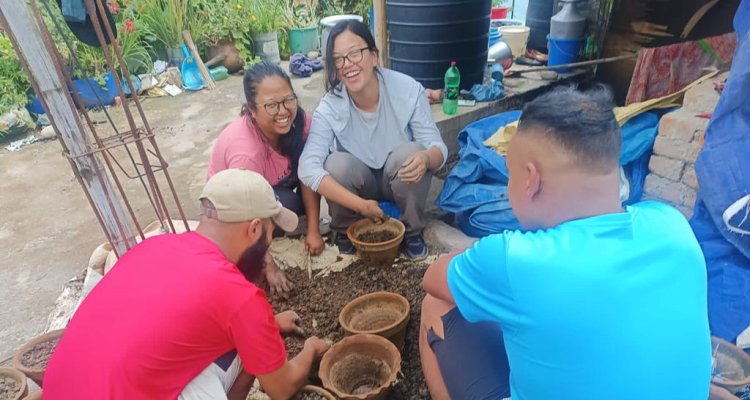
Interview
Nepal team Youth Food Lab: “If we didn’t take action, we might have lost the wetland”
Can harmful invasive plants be removed from wetlands to be used as biopesticides? This is just one of the many innovative ideas to come out of the Youth Food Lab, an initiative by Wageningen University & Research (WUR) and partner organisations. These ideas will reach a global audience at the World Food Forum in Rome from 16 to 20 October 2023.
‘There is a lake in the Kathmandu valley, where I live, which was being degraded every day’, says Manoj Mali, an Urban Studies student from Nepal. Manoj represents his team, Wetlands for Nepal, at the World Food Forum in Rome. ‘It is called Nagdaha, meaning serpent lake. People were throwing garbage into the water. During the rainy season, sand and other sediments flowed in from a construction project at a higher altitude.’ He knew something had to be done: ‘If we didn’t act, we might have lost the wetland.’
From harmful plant to useful biopesticide
Manoj started a clean-up programme in his locality. ‘We started with three people, but more people came to join us every day. Some gave us tea or cookies.’ And the cleaners didn’t just remove garbage; they also tried to get rid of the harmful water lettuce. This invasive plant species had overgrown the lake and outcompeted the native water lotus plant. Rather than throwing it away and creating a lot of waste, Manoj’s team set out to reuse the water lettuce in local agriculture. Manoj: ‘Farmers use different combinations of plants, water and cow urine as biopesticides. We added the water lettuce to the combination, which works as both pesticide and fertiliser.’
- Unfortunately, your cookie settings do not allow videos to be displayed. - check your settings
Youth Food Lab
The nature-based solution by the Wetlands for Nepal team made it all the way to Rome, where the Food and Agriculture Organisation of the United Nations (FAO) is currently hosting the World Food Forum. At this event, WUR is showcasing the results of the newly established Youth Food Lab incubator programme. Ten teams from around the world, including Bolivia, Italy, Kenya, and Sri Lanka, pitched their projects to attendees. The team representatives also got the chance to engage with investors and stakeholders in global food systems.
On Tuesday, 17 October, Manoj pitched his idea to an international audience. ‘I am really grateful for this amazing opportunity’, said Manoj after his presentation. ‘I’ve met a lot of energetic youths, I’m making new connections, and we can all help each other.’ His team also won a Youth Seed Award, which allows them to run lab tests with their pesticide. The award was made possible by the Dutch Ministry of Agriculture, Nature and Food Quality and the Wageningen Ambassadors of the University Fund Wageningen.
Making impact
Manoj and his teammates learned about the Youth Food Lab through the Nature-Based Solutions Challenge, a student competition organised by WUR Student Challenges. Their participation in both of these events has clearly paid off, concludes Manoj: ‘When we started, we didn’t have a single penny. Now, we have support from WUR, the British Council in Nepal, the Youth Food Lab, and many others. Just one action can have a lot of impact in society.’
More information
The Youth Food Lab is an incubator programme organised by WUR, World Food Forum/ FAO (WFF) and the International Association of Students in Agricultural and Related Sciences (IAAS). The programme aims to allow young people to make food systems worldwide more sustainable through innovative ideas. With mentorship from experienced professionals in the industry, bi-weekly masterclasses and personal guidance, the Youth Food Lab members were able to develop the necessary skills to work out their ideas and pitch them on the global WFF stage.